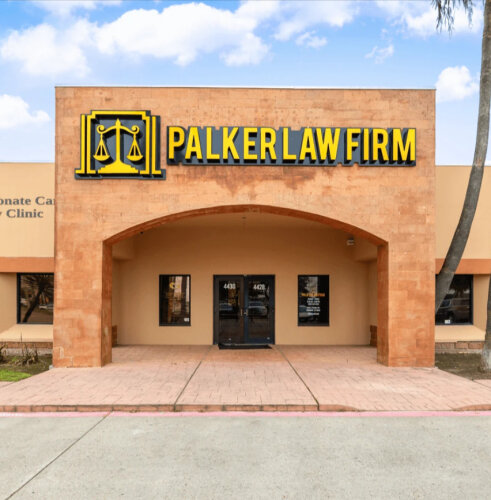Best Sexual Abuse Lawyers in Edinburg
Share your needs with us, get contacted by law firms.
Free. Takes 2 min.
List of the best lawyers in Edinburg, United States
About Sexual Abuse Law in Edinburg, United States
This guide focuses on sexual-abuse law as it applies in Edinburg, Texas, United States. Sexual abuse covers a range of criminal conduct and civil harms, including sexual assault, rape, sexual contact with a minor, exploitation, and related offenses. Criminal law in Texas addresses these acts under the Texas Penal Code, while family, child-protection, and civil statutes provide additional remedies and procedures. If you are facing or have experienced sexual abuse in Edinburg, you may be dealing with criminal investigations, possible prosecution by local authorities, civil claims for damages, and access to victim services. Local law-enforcement agencies, the Hidalgo County District Attorney, and statewide agencies are the primary institutions that handle reporting, investigation, prosecution, and victim support.
Why You May Need a Lawyer
Sexual-abuse matters involve complex legal, evidentiary, medical, and emotional issues. People commonly seek a lawyer for the following reasons:
- To understand criminal exposure or to defend against allegations. A criminal defense lawyer can explain charges, potential penalties, and strategies in court.
- To pursue civil claims for damages when a criminal case is not filed or when additional legal remedies are desired. Civil lawsuits can seek compensation for medical costs, therapy, lost wages, pain and suffering, and other harms.
- To protect the legal rights of a minor. Guardians and caregivers often need counsel to interact with Child Protective Services, the school system, and law enforcement, and to file civil claims or protective orders.
- To obtain protective orders and emergency relief. Lawyers can help prepare applications for family-violence or stalking protective orders and represent clients at hearings.
- To preserve evidence and coordinate with forensic-exam providers. Attorneys can advise on obtaining medical exams, preserving electronic evidence, and working with Sexual Assault Nurse Examiners - SANEs.
- To navigate victim compensation programs and advocacy services. Lawyers and victim advocates can help apply for crime-victim compensation and ensure you receive available benefits.
Local Laws Overview
Key legal points that are particularly relevant in Edinburg include:
- Criminal statutes: Texas law defines a range of sexual offenses in the Texas Penal Code, including sexual assault, aggravated sexual assault, indecency with a child, sexual performance by a child, and continuous sexual abuse of a young child. Penalties vary based on the nature of the offense, the victim s age, the use of force, and other aggravating factors.
- Age of consent: Under Texas law, the general age of consent for sexual activity is 17. Sexual activity with persons under that age can lead to serious felony charges for adults and older minors depending on the ages involved and the circumstances.
- Mandatory reporting: Certain professionals and caregivers are legally required to report suspected child abuse to the Texas Department of Family and Protective Services - DFPS. Health-care providers, teachers, counselors, and others must make reports when they suspect abuse or neglect of a child.
- Victim services and forensic exams: Victims of recent sexual assault have access to forensic exams through SANE programs and may be entitled to have the cost covered. Hospitals and local advocacy centers can advise survivors about evidence collection and medical care.
- Protective orders and family-law remedies: Victims who face threats, stalking, or family violence may seek protective orders through the family courts. Protective orders can restrict contact and provide other safeguards.
- Civil remedies and employer liability: Civil causes of action include assault and battery, intentional infliction of emotional distress, negligent supervision or hiring, and other tort claims. Employers, institutions, and property owners may face liability when they knew or should have known about abusive behavior and failed to act.
- Statutes of limitations: Time limits to file criminal charges or civil claims differ by offense and the victim s age. Some sexual offenses against minors and certain severe sexual crimes may have longer limitations or special rules. Consult a lawyer promptly to understand applicable deadlines.
Frequently Asked Questions
How do I report sexual abuse in Edinburg?
To report sexual abuse, contact the local police department in Edinburg or the Hidalgo County Sheriff s Office for immediate emergencies dial 911. For suspected child abuse, you can also report to the Texas Department of Family and Protective Services. Law enforcement will take a statement, may begin an investigation, and can direct you to medical and advocacy resources.
Should I get a medical exam even if I do not want to report to police?
Yes. A medical exam can address injuries, test for sexually transmitted infections, and preserve evidence should you decide to report later. Many hospitals and SANE programs can provide exams and explain options for evidence storage and confidentiality.
What criminal charges might apply in sexual-abuse cases?
Charges can include sexual assault, aggravated sexual assault, indecency with a child, sexual performance by a child, and online solicitation. Specific charges depend on the facts such as the victim s age, the presence of force or coercion, use of a weapon, and prior convictions.
Can I pursue a civil lawsuit against the abuser or an employer?
Yes. Even if criminal charges are pursued, a victim can file a civil suit for damages against the perpetrator and, in some cases, against employers, institutions, or property owners whose negligence contributed to the abuse. A civil lawyer can explain potential claims and remedies.
Are there protective orders available for sexual-abuse victims?
Yes. Victims who face threats or ongoing contact can seek protective orders through the courts. Family-violence protective orders can prohibit contact and include other conditions intended to keep the victim safe. A lawyer or victim advocate can help with the application and court hearing.
Will reporting mean I have to go to trial?
Not always. Many reported cases lead to investigation, and outcomes range from no charges, to plea agreements, to trials. Reporting triggers the criminal process, but each case follows its own path depending on the evidence and prosecutorial decisions.
What protections exist for minors who report sexual abuse?
Children have additional protections under Texas law, including mandatory reporting by certain professionals, child-protection investigations by DFPS, and specialized prosecutors and interview procedures to reduce trauma. Courts and advocates work to protect a child s privacy during legal processes.
Can I get financial help for therapy and medical bills?
Crime-victim compensation programs may reimburse certain expenses such as medical care, counseling, and lost income. The Texas Office of the Attorney General administers victim compensation programs that can be explained by victim advocates or an attorney.
How long do I have to file a civil claim?
Time limits vary by the type of claim and the victim s age. Claims involving minors often have extended or tolled deadlines until the minor reaches adulthood, but rules are complex. Seek legal advice early to preserve your right to file.
How do I choose the right lawyer for a sexual-abuse matter?
Look for attorneys with experience in sexual-assault criminal defense or victim-side civil litigation, depending on your needs. Consider their experience handling sensitive cases, familiarity with local prosecutors and courts, their approach to client communication, and whether they offer initial consultations. Victim advocates and local bar associations can provide referrals.
Additional Resources
Edinburg Police Department - for immediate reporting and local investigations.
Hidalgo County Sheriff s Office and Hidalgo County District Attorney s Office - for county-level law enforcement and prosecution.
Texas Department of Family and Protective Services - for reporting and responding to suspected child abuse.
Texas Health and Human Services - for information on adult protective services and medical resources.
Local sexual-assault crisis centers and SANE programs - for medical exams, counseling, and advocacy. These centers help survivors navigate reporting, evidence collection, and court processes.
Texas Office of the Attorney General - crime-victim compensation programs and victim-rights information.
Texas Association Against Sexual Assault and statewide advocacy groups - for training, referrals, and policy information.
Local legal aid providers and the Hidalgo County Bar Association lawyer-referral services - for help finding civil attorneys or low-cost legal guidance.
National hotlines and crisis lines - national resources provide confidential support, crisis counseling, and referrals to local services.
Next Steps
1. Ensure immediate safety. If you are in danger call 911 or go to a safe location. If possible, get to a medical facility for treatment.
2. Preserve evidence. Avoid showering, changing clothes, or cleaning the scene if you plan to seek a forensic exam. Keep phone records, messages, screenshots, and any physical evidence in a secure place.
3. Report to law enforcement or DFPS if appropriate. Reporting starts criminal or protective investigations and connects you with resources.
4. Seek medical care and a SANE exam. A trained examiner documents injuries, tests for infections, and preserves forensic evidence.
5. Contact a lawyer. Consult an attorney experienced in sexual-abuse cases to discuss criminal defense, civil claims, protective orders, and your legal options. Many attorneys offer initial consultations.
6. Use victim services. Reach out to local advocacy centers for counseling, court accompaniment, and assistance applying for victim compensation.
7. Keep records. Maintain detailed notes of dates, times, witnesses, medical records, and communications related to the abuse and your interactions with authorities.
8. Protect your privacy. Discuss with your lawyer how to manage social media, public statements, and confidentiality during any legal process.
9. Act promptly. Legal deadlines and investigative needs make it important to seek help quickly so evidence and legal options are preserved.
10. Ask for help. You do not have to navigate this alone. Reach out to trusted family, friends, counselors, advocates, and legal professionals for support and guidance.
Lawzana helps you find the best lawyers and law firms in Edinburg through a curated and pre-screened list of qualified legal professionals. Our platform offers rankings and detailed profiles of attorneys and law firms, allowing you to compare based on practice areas, including Sexual Abuse, experience, and client feedback.
Each profile includes a description of the firm's areas of practice, client reviews, team members and partners, year of establishment, spoken languages, office locations, contact information, social media presence, and any published articles or resources. Most firms on our platform speak English and are experienced in both local and international legal matters.
Get a quote from top-rated law firms in Edinburg, United States — quickly, securely, and without unnecessary hassle.
Disclaimer:
The information provided on this page is for general informational purposes only and does not constitute legal advice. While we strive to ensure the accuracy and relevance of the content, legal information may change over time, and interpretations of the law can vary. You should always consult with a qualified legal professional for advice specific to your situation.
We disclaim all liability for actions taken or not taken based on the content of this page. If you believe any information is incorrect or outdated, please contact us, and we will review and update it where appropriate.










